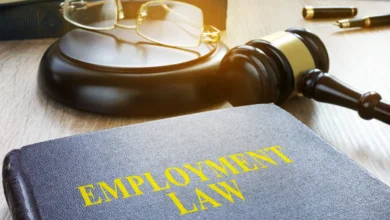How Insurance Adjusters Handle Workers’ Compensation Claims in Virginia Beach

The majority of workers in Virginia Beach are aware of their rights to workers’ compensation once they sustain work-related injuries. But getting the compensation you deserve can be challenging. Typically, employers buy an insurance policy from workers’ compensation insurance providers to cover claims. Ideally, the insurer should deal with claims fairly. Sadly, this is usually not the case.
Insurance companies assign insurance adjusters to handle claims. These adjusters are trained to undermine claims and reduce the possible payouts. If you are pursuing a workers’ comp claim, watch out for such tactics that an adjuster may employ when handling your case. Usually, it is best not to give statements to an adjuster before you consult a Virginia Beach workers comp lawyer. An experienced attorney is aware of the following tactics that adjusters use and counter them:
Contents
Recording Your Conversation with Them
Once an adjuster contacts you after a workplace accident, they will ask questions about the injury you have sustained. They may request a recorded statement from you or ask you to allow them to record your conversation. You should not agree to this request because any statement you make might be used to ruin your claim.
In some instances, insurance adjusters may make it seem like you must provide them with a recorded statement to get your benefits. However, you’re not obliged to do so. It is not a legal requirement to provide the insurance company with a recorded statement. Before you talk to an adjuster, seek an attorney’s guidance first.
Getting You to Authorize Access to Your Medical Records
Insurance adjusters from the insurer can obtain copies of your medical records that have to do with your workplace injury. However, they are not permitted to secure records beyond this. That is why the adjuster might ask you to sign an authorization document that allows them to access your entire medical records. By entire it means all of your records including the ones in the past.
When you sign a medical release form, the adjuster will be able to comb through your previous injuries and pre-existing conditions and use them to downplay your current injury. For instance, they could say your work injury does not have to do with your work, but with an injury you had in the past. Remember that you are not obliged to sign the medical authorization form. If you are not sure about any document the adjuster asks you to sign, speak with your lawyer.
Spying on You
The adjuster will find reasons to downplay your claim and this includes watching your daily activities. The insurance company may hire a private investigator to take videos or photos of you. In general, this is legal when you are in public view. If you are engaging in any physical activity like tending to the garden or jogging, the adjuster could claim your injury isn’t as severe as you asserted.
Likewise, the adjuster will monitor your activities on social media. So, it’s best not to epost about any activities you have engaged in or progress in your condition. Also, consider asking your loved ones and friends to not include or tag you in their posts.
Delaying the Decision
Once you file a claim with the insurance company of your employer, the company should respond to it within thirty days. The company should tell you whether it accepts or denies your claimed injury. However, the company can delay its response in hopes that you will give up your claim. To delay your case, the adjuster may ask for more documentation from you, say that the investigation is ongoing, or ignore your calls and letters.
Usually, the adjuster will drag the claim process until you hire an attorney and file a workers’ compensation claim with the Commission. When your claim is in the docket of the Commission, the insurer needs to comply with a timeline.


